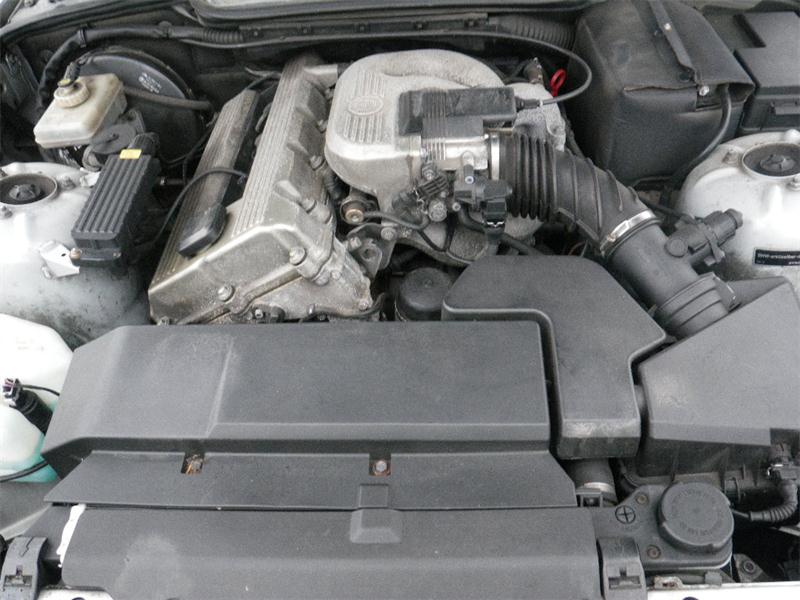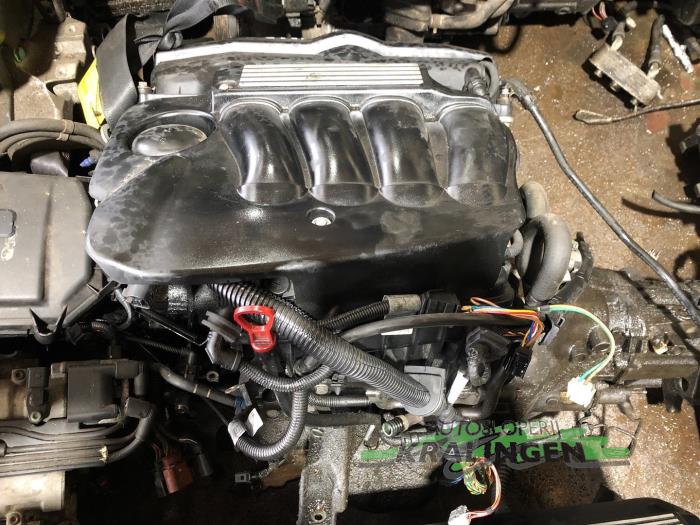Key Features to Look for When Buying an Engine for Automotive Applications
When taking into consideration the purchase of an engine for vehicle applications, several crucial features call for cautious analysis to guarantee optimum performance and performance. From power and efficiency capabilities to sustain adherence, durability, and efficiency to discharges criteria, each facet plays a vital duty in figuring out the engine's viability for particular auto needs.
Power and Performance
When choosing a vehicle engine, customers focus on power and efficiency to ensure optimal driving experience and efficiency. The power output of an engine, typically determined in horsepower (HP) or kilowatts (kW), dictates the acceleration, top speed, and general capacities of a lorry. Higher power rankings normally lead to quicker velocity and better efficiency, particularly throughout overtaking or bring heavy loads. Performance, on the various other hand, incorporates a wider range of attributes, consisting of fuel efficiency, emissions, reliability, and total driving characteristics. A well-performing engine not just provides power efficiently but also runs efficiently across different rate varieties and driving conditions.
Purchasers frequently consider the engine's torque output alongside its power score. Torque, measured in pound-feet (lb-ft) or Newton-meters (Nm), mirrors the engine's rotational force, influencing the automobile's ability to tow, climb slopes, and speed up from standstill. An equilibrium between power and torque is crucial for attaining a flexible and receptive driving experience. Furthermore, factors such as engine hybrid, turbocharging, and variation modern technologies play considerable duties in improving both power and efficiency levels. Eventually, selecting an engine that uses a powerful combination of power and efficiency makes certain a effective and enjoyable driving experience. bmw 318ti.
Gas Effectiveness
Optimizing gas efficiency is a paramount factor to consider for consumers when examining auto engine choices. The performance of an engine directly influences operating expense and ecological footprint. One crucial factor influencing gas efficiency is the engine's design and modern technology. Modern engines with functions like straight fuel shot, turbocharging, and variable shutoff timing can considerably improve gas efficiency by enhancing burning processes and minimizing power loss. Additionally, the overall weight of the engine and lorry, as well as the aerodynamics, play vital roles in figuring out gas consumption.

Toughness and Reliability
Attaining lasting efficiency and trustworthy operation is essential for customers evaluating the durability and dependability of automotive engines. When taking into consideration an engine for automobile applications, durability refers to the engine's capacity to endure wear, stress and anxiety, and extreme operating problems over an extended duration. Dependability, on the various other hand, suggests that the engine can regularly do its desired function without unforeseen breakdowns or failures.
Consumers need to search for engines created with top notch materials and exact engineering to guarantee durability. Elements such as bearings, crankshafts, and pistons ought to be long lasting to manage the engine's power result without early wear. Additionally, engines geared up with sophisticated cooling systems, efficient lubrication, and durable purification devices tend to exhibit higher levels of reliability.
Routine maintenance and adherence to producer suggestions are likewise vital variables in preserving an engine's durability and reliability. By following maintenance schedules, making use of advised liquids, and resolving any kind of concerns without delay, customers can maximize the life-span and efficiency of their auto engines. Inevitably, focusing on toughness and dependability in engine selection can lead to a much more rewarding ownership experience with less unforeseen disruptions.
Emissions Conformity
Making sure compliance with emissions policies is an essential facet of evaluating vehicle engines for environmentally aware customers. With enhancing concerns concerning air high quality and environmental impact, strict exhausts criteria have actually been implemented globally to minimize dangerous toxins released right into the environment. When purchasing an engine for vehicle applications, it is vital to consider its emissions conformity to minimize the carbon impact and stick to legal demands.
Modern engines are geared my link up with innovative emission control modern technologies such as catalytic converters, exhaust gas recirculation (EGR) systems, and selective catalytic decrease (SCR) to reduce dangerous exhaust gases like nitrogen oxides (NOx), carbon monoxide (CARBON MONOXIDE), and hydrocarbons (HC) These systems play an essential duty in ensuring that the engine satisfies the specified discharges criteria and operates within allowable restrictions.

Cost-effectiveness
When thinking about automotive engine acquisitions, evaluating cost-effectiveness is extremely important for customers looking for both efficiency and value. Cost-effectiveness in engine acquisition includes even more than simply the first acquisition rate. It incorporates the total costs associated with upkeep, gas usage, and prospective repair work over the engine's life-span. Going with an engine that offers an equilibrium between upfront expenses and long-term cost savings can lead to significant benefits for the customer.
One trick element of cost-effectiveness is fuel performance. Engines that are made to take full advantage of fuel economy can bring about considerable cost savings over time, specifically for people who drive regularly or over fars away. In addition, thinking about the availability top article and price of spare components and maintenance can add to the total cost-effectiveness of an engine. Guaranteeing that repair and maintenance are obtainable and sensible can prevent unanticipated financial worries down the line.

Conclusion
In final thought, when acquiring an engine for automotive applications, it is important to take into consideration key functions such as power and performance, fuel integrity, toughness navigate to these guys and efficiency, emissions conformity, and cost-effectiveness. These elements are essential in guaranteeing that the engine meets the requirements of the vehicle and operates efficiently in various driving problems - bmw 318ti. Making an educated choice based upon these requirements will eventually cause a effective and effective auto engine acquisition
From power and efficiency abilities to fuel toughness, adherence, and effectiveness to discharges standards, each facet plays a vital function in establishing the engine's suitability for specific auto requirements. Engines designed to run on different fuels such as electrical power, hybrid systems, or biofuels can offer enhanced fuel economic situation and lower emissions compared to traditional gas or diesel engines. Consumers must thoroughly consider the fuel performance scores and modern technologies integrated right into automobile engines to make enlightened acquiring choices that line up with their top priorities for expense financial savings and sustainability.
When considering an engine for auto applications, sturdiness refers to the engine's capacity to endure wear, anxiety, and rough operating conditions over a prolonged duration.In conclusion, when buying an engine for auto applications, it is essential to think about vital attributes such as power and performance, fuel performance, resilience and dependability, emissions compliance, and cost-effectiveness.